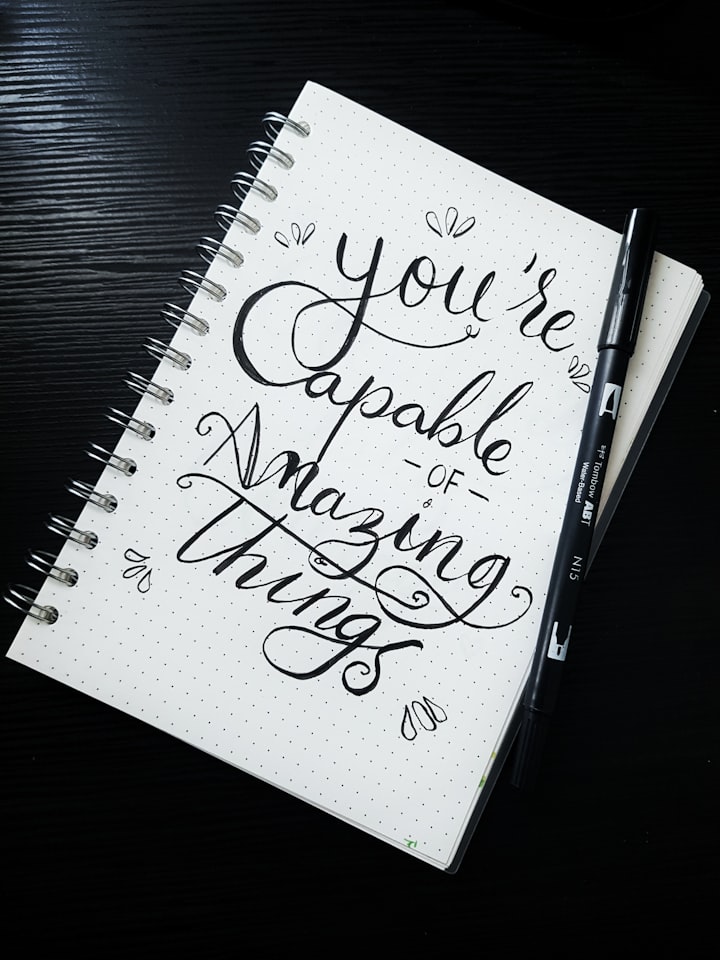Things I Refuse to Feel Guilty About Doing in My Mental Health Journey
A peer supporter's guide on reframing on empowering the way we define and relate to our mental health.

A few weeks ago, I found myself reflecting on my mental health journey since the relapse I experienced nearly a year ago. Instead of succumbing to feelings of shame, I discovered a sense of pride in my progress. Despite the setback of experiencing a relapse for the first time in five years, it served as motivation for me to confront other challenges and obstacles that I had been avoiding in my mental health recovery journey.
Some positive examples include receiving an anxiety diagnosis, establishing healthier boundaries around my mental health and recovery journey, and transitioning into the role of an ADHD and neurodivergent coach. I am sharing this because many individuals, regardless of their diagnosis, struggle to acknowledge their progress and emotions due to societal stigmas surrounding mental health.
Why? In today's world, many of us living with mental health and neurodivergent conditions often experience more shame, invalidation, and ridicule than empathy. It frequently leaves many of us feeling frustrated and powerless in our daily lives and mental health journey. So, let's discuss various aspects of our mental health journey that we shouldn't feel guilty or ashamed about doing in our journey. To empower you to define your mental health journey better.
- Feeling pressured to justify seeking help or taking medication can exacerbate our mental health struggles. Why? No one should feel ashamed or burdensome for prioritizing their well-being and seeking support.
- Experiencing setbacks and navigating my anxious communication style can be exhausting, especially when others blame me for their misconceptions. Why? People must understand that nobody is perfect, and facing challenges doesn't diminish our worth; it simply makes us human.
- Advocating for myself and others and addressing problematic beliefs and behaviors. Why? We deserve respect and value beyond our diagnoses and challenges.
- Prioritizing my mental health and self-care, especially on difficult days, is crucial, and it doesn't mean I'm neglecting my mental health. I'll also know longer feel bad for not knowing because people need to realize I don't know is a valid answer sometimes.
- Setting boundaries around who gives me suggestions is important. Why? That's what a medical professional's role is.
My final lesson is that throughout my journey and yours, we've encountered our fair share of mental health challenges. I now perceive those experiences as a testament to my resilience and growth. Despite setbacks and societal stigmas, I've learned to embrace my progress and confront obstacles head-on by sharing my experiences and inspiring others to recognize their achievements and prioritize their well-being without shame or guilt.
Remember, our mental health journey is unique, valid, and deserving of compassion and support. So, let's break down barriers and empower one another to define our paths to mental wellness, focusing on the things and people that uplift us instead of tearing us down.
Remember, seeking and accepting support are essential for clarity and progress in your mental health journey. Surrounding yourself with understanding and compassionate individuals who offer genuine support is crucial. They make you feel valued and empowered, boosting your confidence to navigate challenges even on difficult days. It's important to distance yourself from harmful influences or approaches that hinder your well-being; it isn't a weakness; it's a form of self-care that helps maintain clarity and focus on strategies to enhance your mental wellness.
Taking care of your mental health requires confronting and surmounting challenges tied to your emotional well-being daily. We constantly to adapt and rebound from adversity and society's incorrect opinions on mental health and neurodivergence, and to me, that shows resilience. Lastly, remember to honor and validate your journey.
References
Why the language we use to describe mental health matters. (n.d.). Mental Health Foundation. https://www.mentalhealth.org.uk/explore-mental-health/blogs/why-language-we-use-describe-mental-health-matters
Sosa, R. (2019, July 16). How to Fight Stigma with Strength-Based Language - Active Minds. Active Minds. https://www.activeminds.org/blog/how-to-fight-stigma-with-strength-based-language/
APA Dictionary of Psychology. (n.d.). https://dictionary.apa.org/reframing
About the Creator
Sandy Pace
I’m a freelance writer with ADHD and anxiety. Who’s passionate about mental health awareness and other related topics. And has written for publications like ADDitude Magazine, Thought Catalog, TotallyADD, and other publications.






Comments
There are no comments for this story
Be the first to respond and start the conversation.